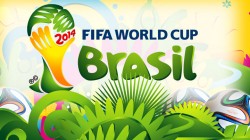Since the World Cup has been everywhere in the media, streets and shops for the past few weeks, we thought it would be interesting to find out the origin of this global tradition and a bit more about Brazil and its language(s).
A Worldwide Sports Event
The World Cup is organized by the FIFA, Fédération Internationale de Football Association, which was founded in 1904 in Paris and is nowadays based in Zurich.
The first World Cup was hosted, and won, by Uruguay in 1930. In all, only 7 countries have triumphed in the 19 World Cups that have been played to date: Brazil has won 5 times, Italy 4 and Germany (as West Germany) 3 times. Uruguay and Argentina have each won twice and England, France and Spain once each.
The World Cup occurs every 4 years. From modest beginnings in 1930 when only 13 countries took part in the tournament, it has gradually grown into one of the most unifying sporting events in the world. The 2014 World Cup will take place from 12th June to 13th July, and a total of 64 matches are scheduled in 12 cities across Brazil.
Brazil in facts and figures
Brazil, with its 198 million inhabitants, is the 5th most populated country in the world. It has a surface area of more than 8.5 million km² making it the 5th largest country on the planet after Russia, China, Canada and the United States. The country is divided into 5 regions which are themselves divided into 26 states plus the Federal District that houses Brazilian capital Brasília. Approximately a quarter of the world’s coffee comes from Brazil. Likewise, Brazil is one of the biggest producers of sugar cane, cocoa, corn and oranges.
It is the largest lusophone country in the world, as well as being the only one in the Americas. Although Portuguese is the official language, some Brazilians speak other languages (roughly 210 in total). There are approximately 180 indigenous languages and some from more recent Asian and European immigrants. Less than 40,000 people (about 0.02% of the total population) still speak indigenous languages. It is estimated that 37,000 speak Korean, 50,000 Italian, 380,000 Japanese, and 1,500,000 German.
Football has a significant effect on the Brazilian culture as it is the most popular sport of the nation. The Guardian features an interesting photo report entitled “Brazil 2014: What the World Cup means to us”. Click here for the article. It highlights the Brazilians’ perception of football and gives an insight into the Brazilian way of life. We also recommend the interview of Michael Reid in The Economist entitled “Brazil: Past, present and future”.
The Brazilian national football team is the only team that has succeeded in qualifying for every World Cup competition ever held. Only a few weeks before we find out who will be the winner of the 2014 World Cup!
In the meantime, if you need translation or interpreting services from or into Portuguese (European or Brazilian), do not hesitate to email us at translation@aplin.co.uk. We would love to hear from you. Enjoy the football!



